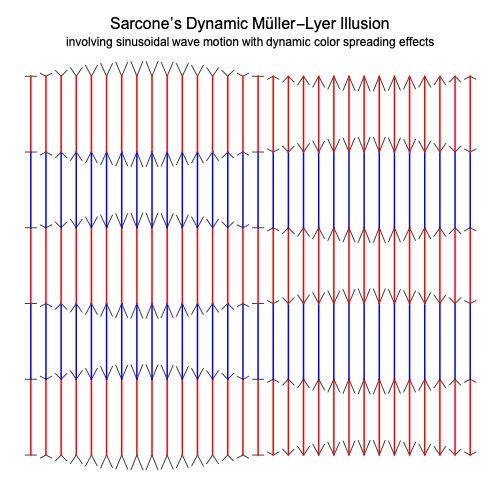Joe Heath is one of my favorite political philosophers. His books, lectures, articles, and even blog posts are consistently mind-blowing, and Joe himself is notoriously stuff-knowing. I don’t know how he manages to read so much sociology and history while holding down a day job in the U of T philosophy department.
But in the interests of epistemic independence, today I’m going to highlight a point of disagreement. Last week, Heath argued for Talcott Parsons’ classic thesis that sickness is socially constructed.
To be clear, Heath’s not saying that being sick is “totally subjective, man.” Some people are objectively infected with influenza, while others are not. Nor is Heath doing a cheap language trick: “The word ‘sick’ is part of our language, which is socially constructed—therefore sickness itself is socially constructed!” This depressingly popular argument makes social construction utterly trivial, since it can be used to show that anything describable by language must be socially constructed, including quarks, people, supernovas, octonions, and roly-polies.1
So what is Heath saying?
The Sick Role
On the naive view of illness, to be ill is to be in an unfortunate phsysiological condition. For example: you might have some E. Coli in your gut, a parasite wreaking havoc in your liver, or an immune system rebelling against you. Heath claims that the naive view is an illusion. To be ill isn’t a matter of having any “natural property” (i.e. the kind of property studied by the natural sciences), but rather a matter of occupying a certain social role—one that, in our society, entitles you to stay home from work (among other benefits), while also obliging you to do what you can to recover (among other duties). This is what Talcott Parsons called “the sick role” in his classic work on the subject.2
As Heath puts it:
What counts as being sick, what one is owed by virtue of being sick, and how one is expected to act when sick, are socially determined, which is precisely what allows these things to change over the course of time, in response to various social pressures. The value of sociological analysis lies in the way that it dissolves the illusion that illness is merely a physiological condition. This illusion is what leads us to think that the consequences of illness – such as exemption from productive labour – follow necessarily from natural features of the condition, rather than contingently from the social expectations of the role. Seeing through the illusion allows us to reflect more carefully and critically about those consequences, about the current constitution of the role, and about how we should respond to pressures to change it.
I’m all for careful reflection and social critique. And I agree that there is indeed a “sick role,” which you qualify for by virtue of being certified as the bearer of certain natural properties (e.g. infection with influenza). As Heath nicely puts it, the natural properties—though themselves perfectly objective—function as a kind of “admission ticket” in our constructed social practice, entitling the property-bearer to enter into the sick role and reap its benefits.

But what exactly is supposed to be illusory? Heath is saying that illness appears to be a natural phenomenon, whereas in reality it is a social role. This illusion, moreover, is not inescapable, like the Müller-Lyer. Instead it can be dispelled by a proper dose of sociology.
But I don’t think that there is any illusion involved in how we see illness. We see illness as being a natural property—being injured, infected, etc.—and that is indeed what illness is. (Though of course we use a socially constructed language to talk about illness, and what we count as illness is partly conventional. Just as it is conventional what we count as “an hour,” “a species,” and “a virus.”) The real problem with the naive view is that it doesn’t see the sick role at all—at least, not as something distinct from being ill. The social consequences of being ill appear “natural” (i.e. nonarbitrary), when in fact they are to a significant degree conventional, just as in a hereditary monarchy subjects of the king might find it “natural” that the king’s firstborn should take over when Dad bites the dust.
Let me give an analogy. Think of the arbitrary and conventional social categories into which boxers are divided: heavyweight, featherweight, and so on. What counts as a featherweight is obviously socially determined (since a body of regulators can, at will, redefine the limits of each category). But I don’t think we’re suffering from illusions because we fail to notice the social construction of weight. Your weight is not in itself socially constructed, any more than the weight of a dumbell or a rock might be. Your weight is an objective, natural property of your body (in relation to the Earth’s gravity)—which grants you entry into a certain socially constructed category. Analogously, your being ill is an objective, natural property of your physiology—which grants you entry into a certain socially constructed role.
So while the the sick role appears invisible on the naive view, there are no illusions about illness itself. To make this excruciatingly clear, let’s use “N” to refer to the natural property that serves as an admission ticket to the sick role, and let’s use “S” to denote the property of occupying the sick role. Heath and I agree that S is socially constructed (unlike N). We agree that ill people typically have both properties N and S. But whereas Heath says that illness = S, I am going to argue that illness = N, just as the naive view would have it.
Why illness is natural
My argument is simple. If illness is a social role, then people who have influenza, cancer, etc. are not sick unless they also occupy the social role. But that can’t be right! The counterexamples are straightforward:
Ignorance. Suppose Lisa has cancer and doesn’t know it. Though she is starting to suffer some debilitating symptoms, she has not paid much attention to them. (“Must be the heat,” she thinks.) Before she ever sees a doctor, much less gets a diagnosis, she dies in a hiking accident, and her body is never found.
Clearly, Lisa was ill. She was suffering from early symptoms of cancer! If—counterfactually—she had gone to a doctor, that doctor would have diagnosed her as having been sick for some time. But she was never actually ill on Heath’s social constructionist view, since Lisa never actually occupied the sick role.3 Or consider:
Error. Suppose Jim has the flu, but he lives in a primitive society where nobody knows anything about viruses. Everybody assumes that Jim must be possessed by spirits, or perhaps he is just acting up inscrutably.
Again, Jim doesn’t occupy anything we’d recognize as “the sick role.” His society might not even have any such role. (It might have something loosely analogous, perhaps religiously inflected.) But he had influenza. So, he was ill!
What would Heath say about these counterexamples? I don’t think he’d “bite the bullet.” He’d want to say that Lisa and Jim didn’t know they were ill. Just because they can’t tell that they’re sick, that doesn’t prevent us from judging them to be sick. Our judgments of sickness take place from our perspective, not from the perspective of the person being judged.
I’m drawing this move from Heath’s passage on sepsis:
one could argue that “sepsis” is a social construct, because prior to the 20th century there was no corresponding category of medical condition (the closest approximation, “blood rot,” was non-overlapping, in the sense that it applied to some conditions that we would not now refer to as sepsis, and excluded some that we would categorize as sepsis). The parlour trick then consists of saying, with a dramatic flourish, things like “before the 20th century, no one ever died of sepsis.” This is true, in the sense that no one died of sepsis under that description, but it is also clearly false, in the sense that throughout all of human history people have died from conditions we would now describe as sepsis.
It would be a “parlour trick” to say that no one had sepsis before we started using the word “sepsis” as we do now. Why? Because judgments of who has sepsis must take place from our present perspective, not from the perspective of the person being judged. I’m assuming Heath would want to say the same of illness in general.
All good—but none of this solves the fundamental problem for Heath’s view. When constructing the counterexamples, I’m not making any judgments of sickness from Lisa’s perspective, or from Jim’s perspective. I’m saying: if we now deploy Heath’s concept of sickness, we would not judge Lisa and Jim to have been sick. They did not occupy the sick role, so they were not, by Heath’s lights, sick. But in fact they were. That is the judgment we make when we deploy our actual concept of sickness when considering these scenarios. Therefore our actual concept of sickness is not Heath’s. Sickness is a natural property, not a social role.4
A bonus counterexample for the road: when we wonder if we’re sick, what are we wondering about: our psysiological states, or our social roles?
Conclusion
Heath argues that we naively suffer from an illusion that illness is natural, rather than socially constructed. I’ve argued that illness really is natural, and that if we are under any illusion, it is that we don’t clearly see the sick role for what it is: to a significant degree arbitrary and conventional.
So in a way, I am trying to divorce Heath’s legitimate point that the sick role is socially constructed from the dubious claim that illness itself is socially constructed. The crux of my argument was that people infected with influenza or suffering from cancer are ill no matter what social role they occupy, just as people could suffer from sepsis long before doctors started diagnosing people with sepsis.
One last move to consider: perhaps Heath will want to say that “illness” and “sepsis” are dissimilar. Maybe “sepsis” denotes a bodily condition while “illness” refers to something else. But what? It can’t just be occupying the sick role itself, as we’ve seen, or else we end up with counterexamples. But it’s unclear what the alternative is. Is there some other socially constructed property that we should identify with illness? Or perhaps Heath is fine identifying illness with occupying the sick role—then what would he say about the counterexamples?
I must say, it’s not easy writing hit pieces about the writers you like. I think I’m going to be sick.
Heath on the “constructivist parlour trick”:
Although this species of social constructivism, which many associate with “postmodern” philosophy, possesses a veneer of radicalism, it is actually trivializing of the hypothesis. Because it derives constructivist conclusions from universal features of language and cognition, it winds up implying that everything is a social construct, which is not all that different from saying that nothing is a social construct. It fails to recognize that some things are a great deal more constructed than others, and that there may be considerable interest in distinguishing the cases. Butler’s argument, aimed at showing that “sex” is a social construct (e.g. p. 117), could just as easily be used to show that “granite” is a social construct (perhaps just a label “assigned at the quarry”).
From The Social System, p. 440:
By institutional definition of the sick role the sick person is helpless and therefore in need of help.
A less compelling type of counterexample has to do with:
Error 2. Suppose Ferris feigns having a fever to get out of school. By sheer luck, the family doctor’s thermometer malfunctions, and Ferris is sent home to rest.
Heath could get out of this example by saying that true occupants of the sick role must in fact have the relevant natural property. Compare: to be the rightful winner of an election, one must have in fact won the majority of votes. Socially constructed properties can be stipulated to depend on objective facts, even if these facts cannot always be definitively ascertained.
In a footnote, Heath says that the key to the parlour trick is a “de re/de dicto ambiguity.” At the risk of pedantry, this is not quite right. The de re/de dicto distinction has to do with scope. Consider a famous example:
I want a sloop.
This is syntactically ambiguous. It could mean, “There’s a particular sloop x such that I want x.” Or it could mean that I want any old sloop—I desire, in Quine’s memorable phrase, “relief from slooplessness.”
This distinction isn’t at issue in Heath’s “sepsis” example. Instead, Heath is invoking a variant of one of the most important principles in all of the philosophy of language, which plays a fundamental role in Saul Kripke’s Naming and Necessity, but which doesn’t have a standard name. I call it:
The Actual Meaning Principle. When evaluating the reference of our term t in some merely possible world w, what matters is the meaning of t in the actual world, not in w.
For example, if my parents had named their first-born child “Chico” instead of “Daniel,” and named their dog “Daniel” instead of “Chico,” would Daniel still have been a human? Yes! In this counterfactual world, people use “Daniel” to refer to a dog, but when we evaluate who Daniel is in this world, we don’t defer to their meaning: we stick with ours. And given our meaning, “Daniel” just refers to me, even in a scenario where people are using “Daniel” differently.
Heath of course isn’t talking about other possible worlds. He’s talking about other times. So he’s really invoking:
The Present Meaning Principle. When evaluating the reference of a term t in some other time period p, what matters is the meaning of t in the present, not in p.
When we look back and ask who had sepsis, we don’t defer to the old meaning of “sepsis” (if there was one). We stick with the present meaning.








But there are surely English expressions for which such counterexamples are not as easy to manufacture. Consider “being a boxer.” In one sense to be a boxer is to have a natural property: being one who fights with one’s fists according to certain rules. But without being recognized as such, by, for instance, USA Boxing or another institution, people would be hesitant to call someone a boxer. In this case being a boxer is about being part of an institution that recognizes you as such.
My sense is that the role and realizer properties are both there as candidates in most cases, but we are inclined toward one as opposed to another in a pattern I do not yet fully understand
Lumping in broken bones and cancer and influenza makes no sense anyway. Their one common through line is that that they're deviations from what we perceive as the normal base state. But the normality of our health is also an illusion. For example, after a certain age, our bodies are in a perpetual state of decline. Is that health or is that illness? Teeth will rot and fall out of your mouth unless you act preventatively. Is that a part of aging or more akin to a broken bone?